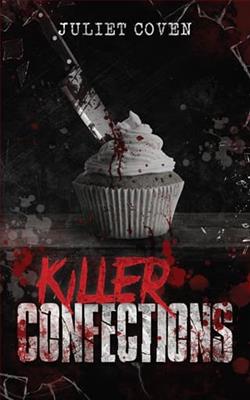Page 30 of The Lovers
“She could have been. Asher’s first wife died when he was in his early forties, and he eventually remarried, but there’s no mention of his wife’s name, at least not in the documents I’ve studied so far.”
“Where there any children?”
Quinn took a sip of espresso to give herself a moment to think. She knew about Barbara but hadn’t seen her mentioned anywhere. She couldn’t very well bring her up before she had factual proof of her existence.
“I’m not sure. I’m still looking into that.”
Rhys shrugged good-naturedly. He seemed more interested in the second skeleton.
“And you don’t think that ourRomeowas of noble birth?” he asked.
“He enjoyed good nutrition and fine health for the period, but his clothes were not of the same quality as those of the woman, and he seemed to have used his right hand extensively, whichwould lead me to believe that he might have had to work for a living.”
Rhys looked thoughtful at this theory. “Or he could have been a nobleman who enjoyed swordplay.”
“That’s a possibility,” Quinn conceded.
“Excellent work, Dr. Allenby. We have a starting point, and now I can get the costume and set designers to start working on some ideas. In the meantime, we need to find out who the woman was and what happened to her. If she were a noblewoman, it might be easier to trace her rather than her companion. Have you any leads?”
“I plan to visit all the churches in the area and see if I can find a parish registry from the period. The entries are not likely to be online, but most churches still keep the old records, if they weren’t burned—which is, of course, a possibility given the time frame we’re working with.”
“Yes, of course, the Great Fire of London.”
“Precisely.”
Quinn replaced the documents in her folder and put them away in her briefcase, ready to leave.
“Dr. Allenby,” Rhys said, his expression thoughtful, “would it be common for a house built during the period you suggest to have an oubliette?”
“No, it wouldn’t,” Quinn replied, startled by the appropriateness of the question. She’d been so focused on the players that she hadn’t given any thought to the location of their remains. The chest had been found in some sort of shaft, which would have been well beneath the ground, even during original construction.
“Oubliettes are mostly found in old castles, ones that had subterranean dungeons. They might have been used by royals to dispose of those who’d been accused of treason or had fallen afoul of them in some way. Or by overlords whose word was law on their lands. I’ve never come across any mention of an oubliette in a private residence in London.”
“Any theories?”
“Perhaps the space was never intended as an oubliette. It could have simply been part of a cellar, or a separate chamber used for hiding objects of value. Lord Asher was a wealthy man.”
“Could it have been a well?”
“Had it been a well, there would’ve been water damage to the chest. No, I believe the space was dry, even at the time of our victims’ death.”
“So, someone locked two young people in a chest—as a punishment, I presume—lowered said chest into the shaft, and left them to die? And no one noted their disappearance?” Rhys speculated.
“We have no way of knowing if anyone noted their disappearance, but clearly the young people weren’t rescued.”
He nodded in agreement, his eyes twinkling with interest. “So, for all intents and purposes, our couple was murdered?”
“Yes, they were. Whoever put them in that chest meant for them to die.”
“I’ll get onto my writers and see if they can come up with a couple of fitting scenarios for our dramatization. In the meantime, I look forward to hearing what you’ve discovered.”
Quinn stood up to leave.
“Dr. Allenby.”
“Please, call me Quinn,” Quinn said. She hated the forced formality of her title.
“Then you must call me Rhys. I can’t help noticing that it’s almost lunchtime,” he said with an innocent smile.















